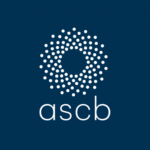
ASCB is offering two week-long courses this summer for PhD students, graduate students, and postdocs in health, science, and medical programs who wish to explore opportunities to implement their expertise in a biomedical business career. Of 230 attendees in 2014-2018, 66% now have jobs in industry, regulatory affairs, or tech transfer; the remainder are still in training or in academia. The course fee is $875 and scholarships from $200-$400 are available, thanks to support from Biogen. The East Coast course, in partnership with Manning School of Business at University of Massachusetts Lowell, is May 31-June 6. The West Coast course, in partnership with Keck Graduate Institute in Claremont, CA, is July 12-18. Each course can accommodate up to 50 graduate students and postdocs (international and domestic).
The deadline to apply is March 31. The application stipulates that applicants must become an ASCB member once they are accepted. Click here for more information and to apply.
Please note – BGS can provide up to $1500 to support students participating in off-site courses. Find more information and access the BGS Course Fund Request Form on the following page, under, “Travel Funds.”





